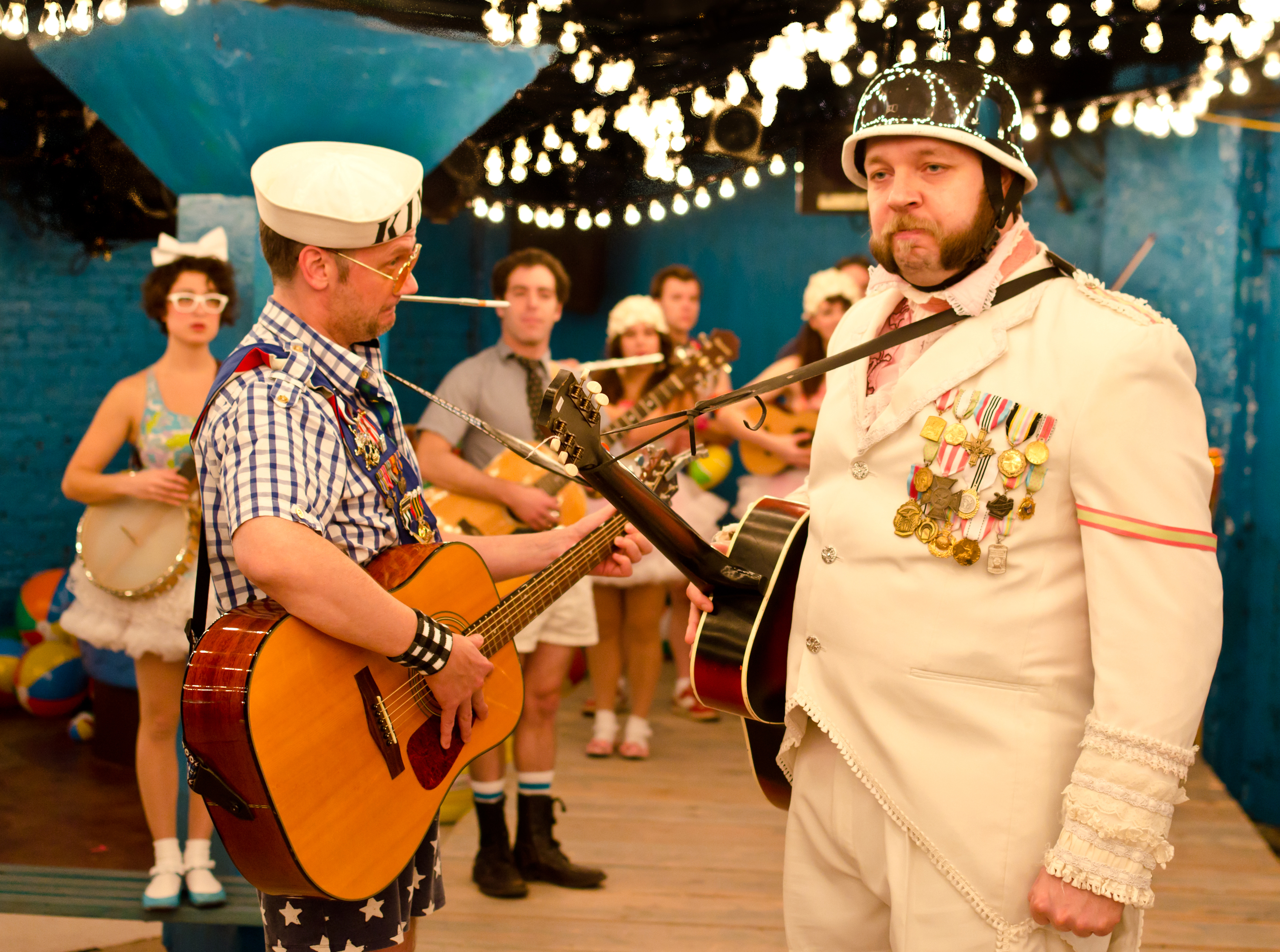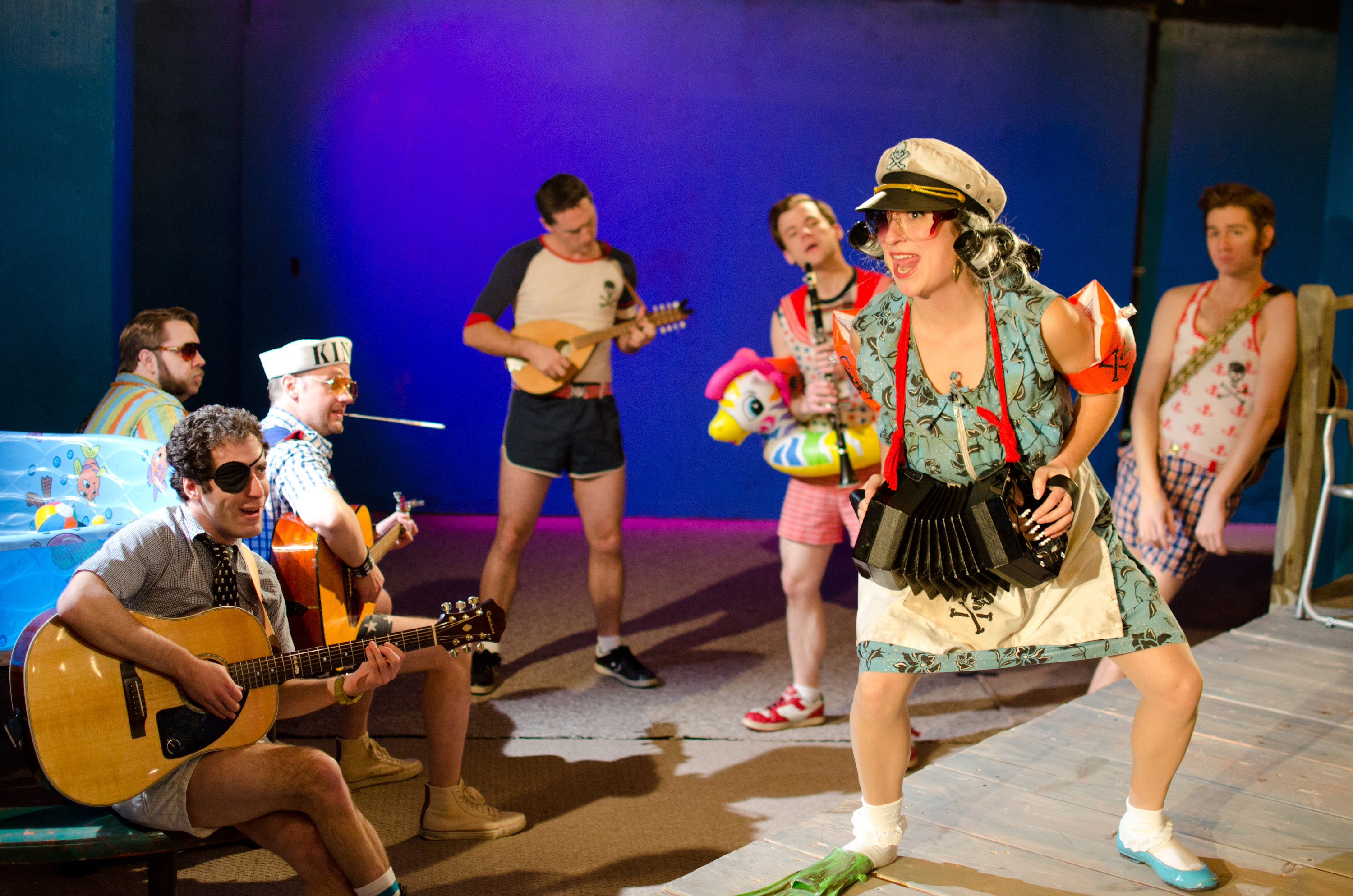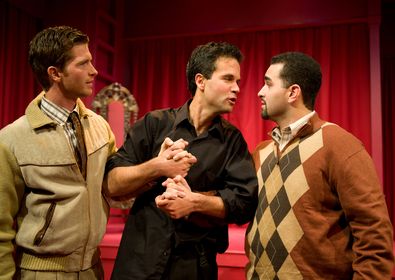This week past was a great theatre-going week for myself and my ever-wonderful partner in crime. There are some exciting things happening in Boston right now and it has been a pleasure to see some of them.
Pippin at the ART
The American Repertory Theatre as an institution seems to be undergoing some changes; though no longer a center for the avant-garde (as far as I can tell, this has now been relegated to their secondary venue the Oberon), they still produce some pretty exciting theatre.
Right now on the main stage, you can see a bold new staging of Pippin.
Alright, alright, it’s Pippin. Yea, the show itself is about as schmaltzy as they come. But honestly, what’s life without musical theatre schmaltz?
And this staging really brings something to the text. Dianne Paulus enlisted the assistance of circus choreographer Gypsy Snider to present a show that’s loaded with spectacle, drenched in theatricality, and definitely somewhere the audience would be tempted to run away to. The choreography is new, but Chet Walker definitely kept the Fosse feel and there are plenty of shoulder-rolls and arm-fans to go around.
Of course, the show stopper (and show-stealer) occured late in the first act (Andrea Martin’s Berthe gave a performance of “No Time at All” that I am hard pressed to ever forget). Matthew James Thomas’ Pippin is petulant and angry, wide-eyed and hungry, essentially the perfect blend of youthful optimism and teenaged angst.
The only performance which I found even slight fault in was that of Patina Miller as the leading player. While Miller is an amazing dancer and her vocals can’t be beat, she lacks the undercurrent of menace that the part requires. If she were to truly dig and find some semblance of an inner villain, the show would be well near perfect.
The finale lacks some sizzle (I’ve been told due to fire codes, or potentially expense), but really. What are you going to do with a show that asks you to set people on fire? From my vantage point second row center, the effect looked cheesy and glitzy (which would have worked had it not been for the plot-point about Pippin ACTUALLY setting himself on fire). I’ve been told that it doesn’t look as awful from further back in the house.
I’ve also been told that Paulus made the exciting announcement at the show’s opening the other night that it would be making its way to Broadway next. I am extremely pleased to hear this. I highly recommend you get out to see it now while tickets are cheap(ish) and the show is local.
Two Gentlemen of Verona by the Actor’s Shakespeare Project
I’ll admit, I didn’t go into this performance with high expectations. There’s a reason that Two Gents is rarely performed. Act Five is a nightmare to make read to a modern audience, and the show’s protagonist is one of the least likeable characters in the canon (for further discussion of this, check out our recent podcast about it).
In addition, I’ve never yet heard a good review of an ASP production. None of my local friends (or mentors) have been impressed with their work, so I did not expect that the combination of these two deadly things would yield anything horribly impressive.
For that, Two Gents is one of my favorite shows and I’ve always wanted to see it done. Despite myself, I was rather excited to find out what the good folks at ASP had come up with.
First things first: I know Bill Barclay’s work from his long tenure at Shakespeare & Company (some of this while I myself was there training). The man’s a genius. His abilities with music are unmatched and it’s always an absolute joy to watch him romp about the stage with his own one-man-band of instruments (in this show alone, you can see him play the guitar, concertina, accordion, ukulele, and harmonica along with an assortment of percussion noise-makers). I expected the music to be outstanding.
Barclay’s performance was equally impressive. Protheus is an extremely difficult part to pull off since it requires a wide range of emotion very quickly (he’s one of the least mature men in the canon), and the foreknowledge that the audience is going to hate you. Barclay’s natural charm and charisma worked to offset this, and his command of the text meant that he got every ounce of emotional connection out of the role.
Unfortunately, he was in the minority. The women onstage were less impressive – Paige Clark (Julia) went for shtick over emotion, and Miranda Craigwell (Silvia), though stunning, didn’t seem to make any acting choices at all. Marya Lowry made an excellent gender-bent Duke (Duchess) of Milan, but her Lucetta was frantic and muddy. This is doubly unfortunate since the women are the true heart of this show; without a deep connection to Julia, the audience has no reason to react to Protheus (though Barclay’s charisma covered a multitude of sin).
The clowning was spectacular. Thomas Derrah as Speed and John Kuntz as Launce were precise, efficient, and uproarious. They counter-balanced each other admirably, and entertained thoroughly. They were aided in this endeavor by Bruno, the most well behaved dog I’ve ever seen, in the role of Crab. To quote Geoffrey Rush as Philip Henslowe, “You see – comedy. Love, and a bit with a dog. That’s what they want”.
ASP solved the act five fireworks with a game of bardic footsie that I can only describe as “admirable”. After menacing the outlaws, Protheus turned to Silvia, made his threat, then realized what came out of his mouth. Disgusted with himself, he dropped his knife, fell to his knees, then wrapped his arms around Silvia’s waist in a pathetic act of self-reproach. Enter Valentine who sees something more than what he sees (as a lover is wont to do). For a modern audience, I think this is the only way to make the scene read if you still want to maintain any sense of empathy with Protheus in the end. It ensures that Protheus remains redeemable without violating the text.
On the whole, this production was charming and enjoyable. While it lacked substance and true feeling, it did have entertainment value in spades. I would encourage you to go see it but, alas, it closes today.
ASP will be doing a production of Pericles in April that I, for one, will be extremely interested to see.



 Oh, and to make things a little more challenging for the actors, they were also the orchestra. They flitted about the stage playing their own accompaniment on a series of instruments attached to their bodies in various ways from guitars, to clarinet, banjo, ukulele, drums, concertina, accordion, violin, and (I kid you not) musical saw.
Oh, and to make things a little more challenging for the actors, they were also the orchestra. They flitted about the stage playing their own accompaniment on a series of instruments attached to their bodies in various ways from guitars, to clarinet, banjo, ukulele, drums, concertina, accordion, violin, and (I kid you not) musical saw. instead of agonizing over the proper usage of periods in Chicago-style citation (seriously, Tufts, you are BLOWING THE MIND of this MLA-girl… guess I should get used to it since this is the rest of my life… sigh), I took my gay best friend to see Bad Habit Productions’ Much Ado About Nothing …with a twist.
instead of agonizing over the proper usage of periods in Chicago-style citation (seriously, Tufts, you are BLOWING THE MIND of this MLA-girl… guess I should get used to it since this is the rest of my life… sigh), I took my gay best friend to see Bad Habit Productions’ Much Ado About Nothing …with a twist.



 of thing they must learn by example and since theatre is becoming less and less of a commonplace past-time we are doomed to future auditoriums full of fearful audiences?
of thing they must learn by example and since theatre is becoming less and less of a commonplace past-time we are doomed to future auditoriums full of fearful audiences?